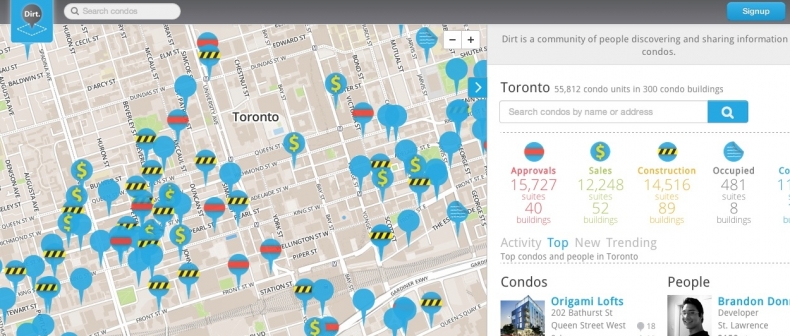
It was a perfect storm years in the making.
The creation of the MP3 file format, the rise of peer-to-peer sharing networks, and the ubiquity of the iPod all conspired to bring the multi-billion dollar music industry to its knees. These were not subtle changes, easily missed. These were seismic shifts in an ever-evolving landscape. Rather than embracing change, the captains of industry clung to the status quo. Instead of listening to their customers, they launched lawsuits against them.
We have since seen this pattern repeat many times, in many industries. The consumer demands choice, reasonable pricing, and transparency. The industry buries its head in the sand (or worse, actively opposes its customer). Real estate is just the latest in a long line of industries to battle the transformative power of the Internet.
Last month, the Competition Bureau lost its high profile case against the Toronto Real Estate Board. For almost five years, the Competition Bureau had been fighting to get real estate boards across the country to open up more access to their listings. This has the potential to create innovative business models which would, in turn, create more choice for consumers. The case was thrown out of court on a technicality. What a shame.
In spite of the industry’s resistance, there are those who continue to challenge the status quo. Brandon Donnelly and Mike Lerner, the founders of Dirt, are part of a new breed of real estate entrepreneurs. They believe in embracing technology, community, open data, and great design to disrupt the incumbents in the space.
Dirt is a social community of people sharing and discovering information about condos. The website allows users to get the ‘dirt’ on a specific building. It was built out of the frustration that much of the information people wanted was restricted, fragmented, or entirely unavailable. Since its launch a few months ago, Dirt has amassed information on about 250 condos across the city. Much of that information has been added directly by its community of enthusiasts.
“The problem we are trying to solve is information,” explains Donnelly. “We see information as the root and core problem of the industry. Our approach is to create a social network where people can share the information and benefit from it.”
“The information is out there,” continues Lerner. “As a condo owner or even as a tenant in a condo building, I have a lot of insight about that building that could help somebody looking in from the outside considering a purchase.”
In other words, Dirt intends to harness the power of the crowd. Think of it as one part Wikipedia and one part Yelp for condos. Dirt was built on the premise that every single one of us around the city has access to pieces of information about real estate. That may be a photo, a review, or statistical information about a building. Dirt’s platform allows that information to flow freely. This crowdsourcing approach also has the added benefit of circumventing the restrictive real estate boards. By building this information from the bottom up, the Dirt community is not beholden to the demands of organized real estate or developers.
More than just providing objective information about a building, Dirt aims to be the place to go for subjective reviews. Input from the community is a powerful thing. If you are a buyer looking to purchase a new condo, what better way to get insight about your purchase than from the people who live there or know it?
Also key to the Dirt website is the concept of curation. ‘Props’ — similar to Facebook ‘likes’ — are given out by members of the community to buildings they like. Higher ranked buildings will accumulate more props from the community. This allows the cream to rise to the top. Users will be able to quickly determine the best buildings in any given neighbourhood, as determined by the crowd and not some biased or arbitrary source.
“It’s hard to think of a scenario in which people are better off having less information,” observes Donnelly.
Real estate is an industry that has traditionally tried to hoard that information.
If there is one thing that the music industry debacle has taught us, it is that you cannot stop the relentless march of progress. Instead of lobbying governments and resisting change, the real estate industry could use that money to support innovative new startups and business models.
These are still early days for Dirt. To live up to its vision it must add more buildings, more reviews, and more data points. This will be no easy task. Dirt has accomplished much in only a few short months, but there is still a long path ahead. It does have one secret weapon though: The power of the crowd.
____
Kevin Ali is a Toronto-based real estate broker and the founder of Fresh Space. Follow him on Twitter @FreshSpaceCo.
For more, follow us on Twitter at @TorontoStandard and subscribe to our newsletter.














